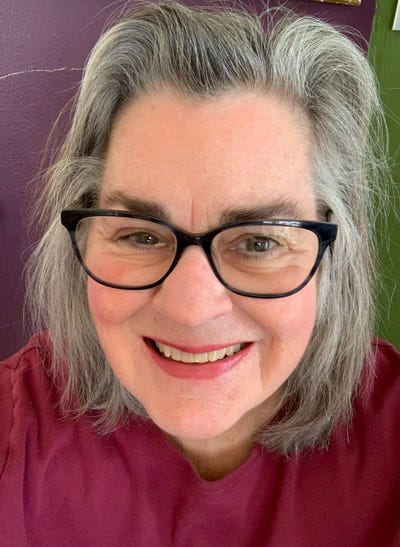April 24, 2008

As the federal government seesaws over supplements regulations, retailers and consumers are turning to private entities to discover whether their supplements are safely produced and effective. These certifiers have detailed good manufacturing practices standards for manufacturing, packaging and distributing dietary supplements are designed to satisfy even the most confused consumer or retailer as to the quality and efficacy of at least some of the supplements stocked on store shelves.
GMP certification for supplements came of age in the last decade and didn?t really take off until 1997, after Congress passed the Dietary Supplement Health and Education Act. The U.S. Food and Drug Administration published preliminary GMPs after consulting with supplements industry representatives. A spokesman says the FDA is hoping to finalize its GMPs before the end of this year.
In the meantime, there are four main organizations that offer GMP certification or seals for dietary supplements: The U.S. Pharmacopeia, the National Nutritional Foods Association, NSF International and ConsumerLab.com. Some use the FDA preliminary GMPs, some have their own standards, and some use a combination. Here?s a look at how each organization determines its GMPs and what its seal really means.
U.S. Pharmacopeia
This nonprofit organization, based in Rockville, Md., has the longest list of GMP standards—33 pages. According to Srini Srinivasan, vice president of USP?s verification program, the standards were determined by input from industry groups, government agencies, nonprofit organizations, academic institutions and pharmacists. The GMPs became official in 1993, but only for vitamins and minerals. After DSHEA was passed, the USP expanded its GMPs to include more than 100 botanicals.
That revision went into effect in 2001, but Srinivasan says USP is always updating and revising its standards with suggestions from industry experts, consumers, academicians and other interested parties. Proposed and adopted revisions are included in USP?s Pharmacopeial Forum, which is published bimonthly. They are also posted on USP?s Web site, www.usp.org.
Six companies are currently participating in USP?s verification program: Pharmavite, Leiner Health Products, Inverness Medical Innovations, Weider Nutrition Int?l., NutraMax Products and Tishcon. More than 150 of their products are eligible for the USP seal. ?Our program is so rigorous, only very few companies are able to complete it,? Srinivasan says. It takes months and tens of thousands of dollars to certify a product, he says.
USP?s GMPs address:
Training and cleanliness of a manufacturing company?s personnel
Manufacturing building design, including lighting, heating and cooling, and sewage
Equipment cleaning and maintenance
Raw material storage, handling, sampling and testing
Written procedures for supplement strength, quality and purity process controls
Labeling criteria for everything from raw product to finished goods
Packaging standards
Warehousing and distribution procedures
Quality control, including written procedures for testing and production and for consumer complaints
Some of USP?s more rigorous GMPs include:
Personnel who process or pack supplements can?t do so if they have an illness, open lesion or any other bacterial problem that could contaminate a supplement batch
Weeds and grass in the immediate vicinity of a manufacturing plant must be cut so they don?t attract or harbor pests
Tamper-resistant packaging requires an identifying characteristic (a pattern, name, trademark, logo or picture) that can?t be duplicated with commonly available materials
Records for raw materials, containers and labels should be kept for at least one year after the shelf life of the last lot of a specific product
USP also has an ingredients verification program that includes a GMP audit, document review and lab evaluation of ingredient samples for compliance with label claims.
National Nutritional Foods Association
NNFA, a Washington, D.C.-based trade association, has been issuing its GMP Certification Mark since 1999, and as of this February, had 48 certified companies (view the list at www.nnfa.org/services/science/GMP_Cos.htm).
NNFA?s GMPs are based on the FDA?s standards but also include input from member suppliers and other trade associations and a final review by NNFA?s GMP Advisory Committee. The advisory committee also recommends revisions to the standards. NNFA?s GMPs include much of the criteria covered by the USP, but the descriptions of how the standards should be implemented are less lengthy.
Companies that want NNFA certification must first conduct a self-assessment following NNFA?s GMPs. They then contact one of the two independent, FDA-approved auditors NNFA uses and arrange for a facility inspection. If the company gets an A rating from the auditor, its certification is valid for three years. The three-day audit costs an average of $7,000 to $10,000, says Vicki Whitsitt, NNFA science and quality assurance program manager. The certification fee is $1,000 plus $250 in annual maintenance.
NSF International
NSF, an Ann Arbor, Mich.-based nonprofit certification agency, uses NNFA?s GMPs for its certification program. It also conducts manufacturing quality system audits using the FDA GMPs. Supplements manufacturers or suppliers that want to be certified by NSF must fill out an application and then undergo a formulation and label review by NSF?s Dietary Supplements Program Office. The next step is a facility inspection and GMP audit conducted by NSF auditors.
Then, a supplement undergoes testing in NSF labs. Testing includes comparing raw materials and finished products with reference materials provided by the American Herbal Pharmacopoeia, the University of Mississippi and other organizations. Botanical material evaluations can include DNA typing, gross and microscopic morphology, and chromatographic fingerprinting.
NSF then prepares a documentation report using the certification information, and stores it at its headquarters and at each production location. Once a product is certified, annual audits and product testing are conducted to ensure ongoing compliance.
Currently, 18 companies carry the NSF mark. View them at www.nsf.org/Certified/GMP.
NSF, in conjunction with the National Football League, also conducts a certification program for snack bars, multivitamins, joint support formulas and pre- and post-workout recovery supplements. The program includes a GMP facility audit and a toxicology review of product formulations to assure they don?t contain any NFL-banned substances.
ConsumerLab.com
CL is a for-profit testing service based in White Plains, N.Y., that issues a CL Seal of Approval. Since 1999, CL has offered two kinds of supplements testing: product reviews and voluntary certification.
For CL?s product review process, a class of products, such as echinacea or St. John?s wort, is pulled from shelves and blind tested by independent labs for four criteria, including:
Identity and potency, following German Commission E, USP and AHP standards
Purity, including tests for common contaminants such as pesticides and heavy metals
Bioavailability, or determining how successfully the product breaks down in the body
Consistency, including evaluating each unit of the product?s potency and purity
During the last four years, CL has conducted 32 reviews of 600 products, says President Tod Cooperman, M.D. Manufacturers of products that pass the review are eligible to purchase the CL seal. Products that carry the seal must be retested every 18 months.
CL posts product review results on its Web site, www.consumerlab.com. For reviews conducted since 2002, products that passed and failed are listed; prior to that, only products that passed are listed. However, to access the list of products that failed, retailers and consumers must subscribe to CL. The fee is $24 a year and includes CL?s encyclopedia of natural products, which lists all recalls and warnings during the past three years.
Voluntary certification is at a manufacturer?s or distributor?s request. The criteria are the same for product reviews, but it?s up to the client to decide if it wants its positive or negative results listed on CL?s Web site. Testing fees are $3,000 per product, Cooperman says. CL also has a raw material and private-label certification program and an athletic banned-substances screening program.
Vicky Uhland is a free-lance writer in Denver. Contact her at [email protected].
Natural Foods Merchandiser volume XXV/number 7/p. 32, 38
About the Author(s)
You May Also Like
.png?width=700&auto=webp&quality=80&disable=upscale)




